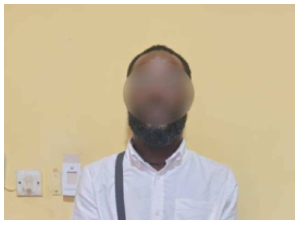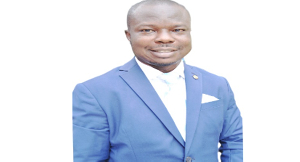Suicide remains one of the baffling actions that man undertakes to the objection of many well thinking people since creation, with or without a message indicating reasons for opting to end one’s life. Death is said to be painful, hence for an individual to shoot his or her self, drink a poisonous chemical, throw one’s self from a height or the most popular, hang from a tree or ceiling is hard to comprehend. Unfortunate though, but suicide continue to be one of the oldest means of exiting the world. In ancient Greece, the belief was, for a person to avoid shame publicly and mental guilt, it was prudent for the fellow to take the life. It was seen as honourable. Zeno of the stoic’s school of philosophy, actually justified suicide then later on, took his own life. Biblical history has it that Judas Iscariot one of the disciples of Jesus Christ who later betrayed him, also hanged himself. Factually, hanging from a height remains one of the known and popular means of committing suicide. Suicide has serious psychological underpinnings which, criminalising it has overshadowed. Under normal circumstance, for a person to undergo suicide successfully or a failed one comes with high levels of anxiety, stress and depression. Thus, categorizing suicide among crime committed against humanity means, there has been lack of proper and thorough analysis of its psychological causalities. The admissible of suicide within the parameters of crime is farfetched. Suicide is unquestionably and without doubt rests within the purview of Psychology.
The inability to isolate this self elimination practise from crime, has switch off the Psychological effect that permeate in this stance. Social convoy, which Psychologist considers as a bandwagon that zip through the journey of life where some people alight while others aboard, involves a wife or husband if married, at school the student’s classmates and teachers. Others include a person’s siblings and parents within a family setting, members of the immediate religious society a person is affiliated to in a church, as well as the Pastor or Imam and Sheikh. Likewise, in the office set up colleague employees and employers.
At a drinking spot, the bar tender remains the social convoy, of revellers. These social convoys are persons a fellow can readily hold discourse with about an issue and be served with some refreshing counselling. Lack of social convoy can be very destructive. This has been a resultant vector of suicide in most instances. Most often, human rights activist have opposed solitary confinement. It has been classified as mental torture. Could you imagine being involved in a case of criminality which you have no one to recount your experiences to? In such instances there is pressure mentally, and failure to have in handy a social convoy can be disheartening.
Recent media reports of successful suicide, with less failed attempts should inform the authorities about the real causes of this sad and unfortunate medium of severing life. In a banner headline story reported by Moses Dotsey Aklorbortu at Kwesimintsim in the Western Region for the weekend edition of the Daily Graphic, dated Saturday 17th September, 2011 number, 18641 with the caption, ‘Jilted student commits suicide’. The story indicates Ms. Mary Rudolph, 17, a student of Fijai Senior High School (SHS) committed suicide by drinking a poisonous chemical after the boyfriend had jilted her. Mary lacked one basic Social psychology gift, social convoy. At school, Ms. Rudolph should have friends, and since she is not married her other social convoys are her parents. If she could not speak or share her jilted situation with her friends, the parents could have served as a buffer to positively intrude into her intra-psychic conflict through the power of counselling. Ms. Mary Rudolph could have discussed this with her teachers also. The question, that need to be asked is, how close are the parents to their daughter? Did the parents consent their daughter at age 17, should enter into a relationship? If, no, then she had kept it a secret, hence upon being jilted she could not break the news to her parents. If the parents approved of her relationship at 17, she could have been counselled as to how to manage the situation. Remember, Ms. Rudolph was fixated to the said partner. A realistic aspect of suicide is decision on it is taken individually and personally. In other words, desire to end one’s life always becomes a personal issue. Again, when a person loses the job without a proper negotiated transition from employable life to a state of redundancy, it could lead to suicide, if the employers ignore the social convoy role they play in the life of this retrenched staff. Most often, it could result in dire consequences for such fellows, especially when the employers just call the employee and throw the retrenchment letter at him or her, without any prior notice in the form of discussion.
A Psychologist is supposed to be engaged by every establishment, in most instances, many firms have broken ranks with this order. With no one to talk to and share the frustration of been without a job coupled with financial demands, and the telling responsibilities which will emanate from matrimonial homes if married, has the capacity to push hard such persons into the chilled arms of suicide. Can there be a legislation binding organisations to engage the services of Psychologist to deliver the goods in times such as stated above? Again, a teenager age 14, a J.H.S pupil of Yaabem, a suburb of Agona Swedru in the Agona West Municipality in the Central Region hanged himself. Suicide has no age limit. Unfortunately, this young gentleman went abruptly bereft of a note, thereby giving no indication as to the actual basis for his action. Those with grave yard flowers on their heads and others without have been going this way, though weird.
This story was also reported in the Daily Graphic, Saturday, weekend edition, number, 18695, dated 19th November, 2011, page 22. The reporter of this rather sad tale was, Gilbert Mawuli Agbey, from Agona Swedru.
The description of the deceased by the father a Cocoa farmer indicated that, the son was humble and obedient, and therefore surprises many as to what was really the cause for this action. The father though amazed, could get a true reflection of proceeding of overt behaviour of the son from his other siblings, if possible. Nonetheless, there is an aspect of suicide everyone needs to acquaint his or her self with, it’s a covert behaviour, which only becomes overt at the gory end. According to the caretaker of the deceased, whose name was simply given as Auntie Aggie, could not place her finger on reason(s) for the unfortunate action. There are overt and covert behaviours that could only be observed through psychoanalysis. These behaviours are not vivid to the eye, unless an assessment is psychologically executed. This has been the problem that is there for those who have criminalised suicide to solve. The young J.H.S. 2, pupil could be seen going to and from school, but what was transpiring mentally was the personal burden of the gentleman. A counsellor within reach could have been of real help to this pupil. Another question that has to be answered by the Private Institute he attended is, does the school have a counsellor, if it’s in the affirmative, how accessible was it to the students? If the answer is in the negative, then there should be an establishment of such with a qualified Guidance and Counseling Psychologist, and be brought much closer to the pupils. Another case of suicide has again been reported in the Ashanti Region of a teacher.
The 33 year old man, who was a tutor at the Komfo Anokye Senior High School (SHS), was said to have hanged himself, with the reason that he could not solve a personal issue that had been lingering on for a while. This story was also carried by The New Daily Guide, a daily newspaper based in Accra. It was made known on Joy FM an Accra based radio station, during one of their flagship morning programmes, ‘Newspaper review’ Whatever that personal issue was which he could not see it through, culminating into this bizarre end will be the cause of worry for the family and loved ones’ for time to come. What prevented him from confiding in any one? To what extent was the problem personal, which thwarted him from seeking help? The litany in recent stint of suicide with all directed to one personal problem or the other, clearly gives the indication there is real trouble than we can imagine. What the country ought to do in order to avert this sad gripping situation is, to make widely available facilities for the services of Specialist in Community, Clinical as well as Guidance and Counseling Psychology. All these expert services should come or fall under the National Health Insurance Scheme, (NHIS). This wedded with education will enable the populace to get empowered to handle the edge to execute suicide. Above and beyond the discussions as whether suicide should be gaoled as an act of criminality, let’s take a second look at this social evil again. Now, it awash the print media daily, with the electronic, reporting it in drops, stories pertaining to suicide. Stigmatisation is another resultant vector of suicide. This subtle social evil has been ignored to the detriment of many unfortunate situations. There is direct and indirect stigma. Direct stigma has to do with a person who have suffered a negative situation and is stigmatised by society. Whereas, indirect stigma is born by those associated or is affiliated directly or indirectly to the fellow who is stigmatised. Vivid examples worthy citing are the cured mental patients. Not long ago, the Accra Psychiatric Hospital integrated some cured inmates into their various communities throughout the country. These cured inmates are supposed to be embraced by society and be involved in decision making. If their immediate families and communities treat them as outcast with a frown face, it is a step to fencing these cured mental patients into themselves. This is possible with the African belief that, mental diseases are incurable. Hence, these unfortunate brothers and sisters, when they suffer such isolation might contemplate suicide, as the only means of escape from their psychological quagmire.
The indirectly stigmatised equally undergo agonising fend off behaviours from society. These include the immediate family members such as spouses, children and parents considered as been susceptible to mental illnesses. Members of the families of these directly stigmatised are refused marriages in some communities. This most often than not, push them (the stigmatised) out of society and deteriorate their association with the immediate communities. Gradually these mentally cured patients see themselves isolated from society and enclosed. The only escape route is taking their lives.
Additionally, the Ghanaian society and the world over, so to write, exhibit shunning behaviours towards ex-convicts. Many are ex-convicts who are rejected by their immediate families. Feeling pushed out, these ex-convicts hope to be embraced by the larger society. But, unfortunately they equally get a face-off. These ex-convicts relapse into intra-psychic conflict. In the cause of this mental melee, they rather find suicide as the safest hands to run. Again, ex-convicts are always the first suspects to be apprehended in cases of crimes in our societies. This societal behaviour serves as a barricade or screen which prevents them from integrating into society smoothly. The cagey condition leaves these former prisoners alone in their world, unengaged and despised by the human community; the consequence of insanity in taught, has the propensity to result in suicide. Abandonment and neglect by families of these unfortunate fellows or relations drive them to suicide, fastened with the Psychological covert behaviours.
In this write up what is sort for is to appeal to the authorities of this country not to only decriminalise suicide, but also understand that, such persons, who have tried and succeeded or failed in their attempt to commit suicide needs psychological as well as psychiatric help. Creating the dais for the prevention and elimination of acts that promote suicide will go a long way to save lives.
Depression is defined in abnormal Psychology as the common cold of a Psychiatric problem. Depressive moments are really trying. If the needed care, help and attention is not received it can be disastrous. Bouts of depression can disintegrate a normal and regular life, which consequence can be suicidal.
In spite of the above true reflections of the courses of suicide being psychological, one needs to come to terms with the fact that society plays a key role in this causality. For instance; the issue of people living with the stigma of albinism, society refuses these individuals certain privileges and are treated as outcast in some cases. In many communities people who live with albinism are pelted with stones, and worst of all, they are most often, killed for ritual purposes. These are fending off attitudes from society. Hence, the failure of society to look out for a means of protection to shield these lives room for suicide to accommodate itself mentally with them. Unless you are out of the field of Psychology you will find it monstrous to believe what our innocent brothers and sisters go through each day. They do not know when the next cat-call will be sounded and in some instances where a stone will emerge from as well as being considered a demon. When society rejects you, what you have, is yourself. Most often the result is dire.
The old mental legislation says in clause 76 (10) that a person who attempts suicide should first be suspected of mental disorder and taken for Psychiatric assessment and if found mentally healthy, may be prosecuted. The choice of suicide by an individual alone should speak enough of what is pertaining mentally with such fellows. Many who have tried to end their lives and ending it for one reason or the other, such as owning a debt, losing one’s job, being jilted by a love one, raises the question, are those persons the first, the only ones’ to transit through such a situation or the last to suffer same? But the answer lay in society. For instance, a retrenched fellow needs pure guidance and counseling on how to adopt and be adept to a new life. Besides, the person in question could be counselled to the effect that, life has though ended at a particular enterprise, but another would start elsewhere. The retrenched fellow would be made aware of the fact that, if he or she was not good enough for that entrepreneur, it would be of a different tail altogether somewhere else. It is the pressure that is exerted on such will-be suicide potentials and the thought of abandonment by society to help them emerge from their predicament which pushes these into the awaiting hands of self-handover-to-death problem. In a recent back page publication, The Ghanaian Times newspaper captioned, “Psychiatrist shortage hits Ghana...as only 2% mental cases are treated” is scary. It was contained in a World Health Organisation (WHO) 2011 report. This leaves 98 out of every 100 mental cases unattended to. The reporter was Kingsley E. Hope, from the Ashanti Regional and Metropolitan capital, Kumasi. The report indicates that, out of 50 Psychiatrics needed to attend to mental cases, only 18 are at post, leaving a deficit of 32. These are some of the indicators and external stimulus which contribute in no small way to heighten the prevalent rate of suicide. The onus berths at the nation towards eliminating suicide from our society. By all intends and purposes, immediate action should be employed to deal with this situation. It rest squarely at the door of policy formulators, as what are their priorities, to either do away with the enigma of suicide or stand by to see this social cancer claim innocent lives.
Nonetheless, society has a comprehensive duty to perform to alleviate these unfortunate brothers and sisters of ours who have failed suicide attempt to understand that, there are broad shoulders for them to rest on. Until then, companies, organisations and firms should also be made to hire the services of qualified Psychologist to help retrenched employees transit cautiously to avert this sad incidence.
Dr Martin Luther King, the late African-American Civil Rights Activist once echoed in the distant past, “Our lives begin to end the day we become silent about things that matter”
Opinions of Wednesday, 25 January 2012
Columnist: Twumasi, Patrick














